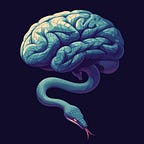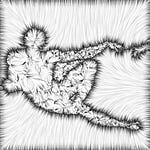Dr. Stetson Thacker returns to Vectors of Mind for a deep discussion about human evolution and consciousness. Stetson, who holds a PhD in genetics with expertise in cancer and neurodevelopmental disorders, was the inaugural guest of the podcast. We dive into the recent Reich Lab preprint that analyzed 8,500 ancient genomes and found evidence for strong selection in the past 10,000 years. This leads to a spirited debate about when humans became "human" - I argue for a relatively recent emergence of consciousness and recursive thinking, while Stetson makes the case for a more gradual affair mostly in place by 200,000 years ago. Along the way, we explore his fascinating research on the P10 gene and how it affects males and females differently, the challenges of ancient DNA research, and the future of genetic engineering.
You can also watch the episode, for those who like to see people’s faces:
Articles we mention:
Stetson: The Public Intellectual Paradox
Dwarkesh Podcast: David Reich - How One Small Tribe Conquered the World 70,000 Years Ago
Akbari et al (including Reich): Pervasive findings of directional selection realize the promise of ancient DNA to elucidate human adaptation
Also, the classics:
Summary:
Dr. Thacker's Background
PhD in genetics focused on genomic medicine
Expertise in hereditary cancer phenotypes and neurodevelopmental disorders
Studied the P10 gene and its different effects in males vs females
Currently runs the Holodoxa Substack and podcast
The Reich Lab Paper on Ancient DNA
Analysis of 8,500 ancient genomes shows strong selection in last 10,000 years
Found significant shifts in polygenic scores for traits like intelligence
Debate over interpretation - could support recent evolution of human cognition
Discussion of methodological challenges and limitations
Core Debate: When Did Humans Become "Human"?
Cutler: Argues for recent emergence of recursive self-awareness (~50,000 years ago)
Thacker: Believes core human cognitive capabilities existed by 200-300,000 years ago
Discussion of archaeological evidence and genetic timelines
Debate over gradual vs phase change models of human evolution
The Nature of Human Uniqueness
Different perspectives on what makes humans special:
Cutler emphasizes recursive grammar and self-awareness
Thacker focuses on social capabilities and cumulative culture
Discussion of symbolic thought and language capabilities
Debate over Neanderthal cognitive abilities
Future Research Directions
Potential of synthetic biology and genetic engineering
Need for better understanding of genetic basis of cognition
Importance of clinical genomics for cancer and rare diseases
Value of interdisciplinary approaches














